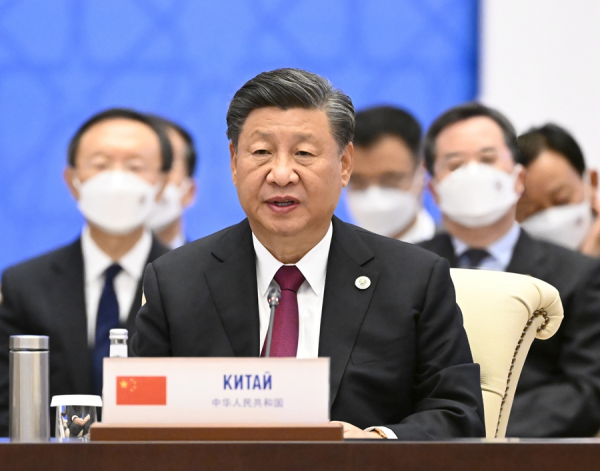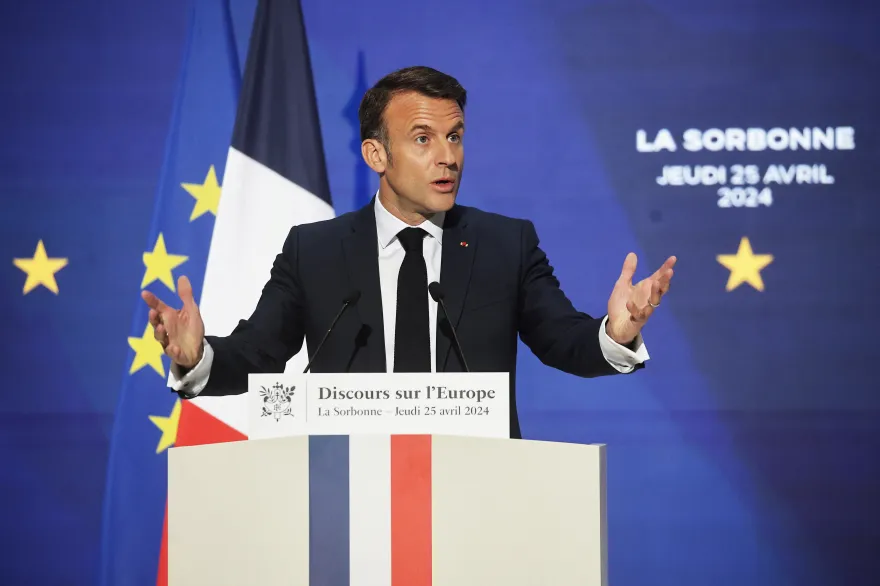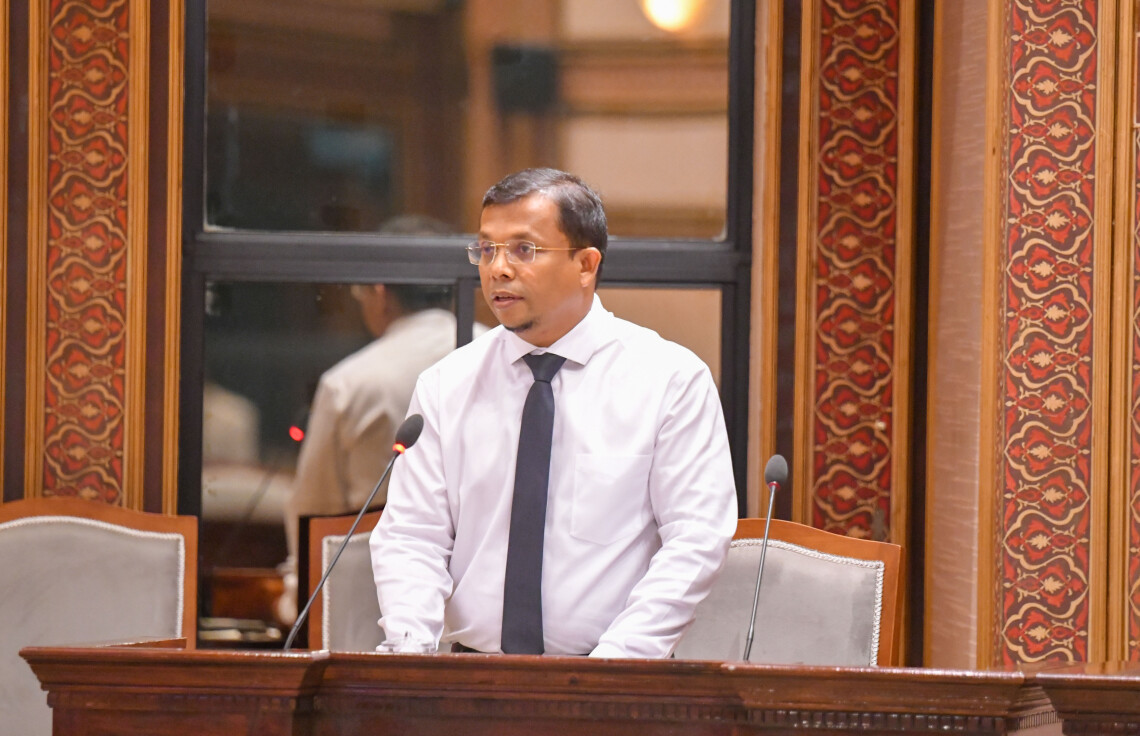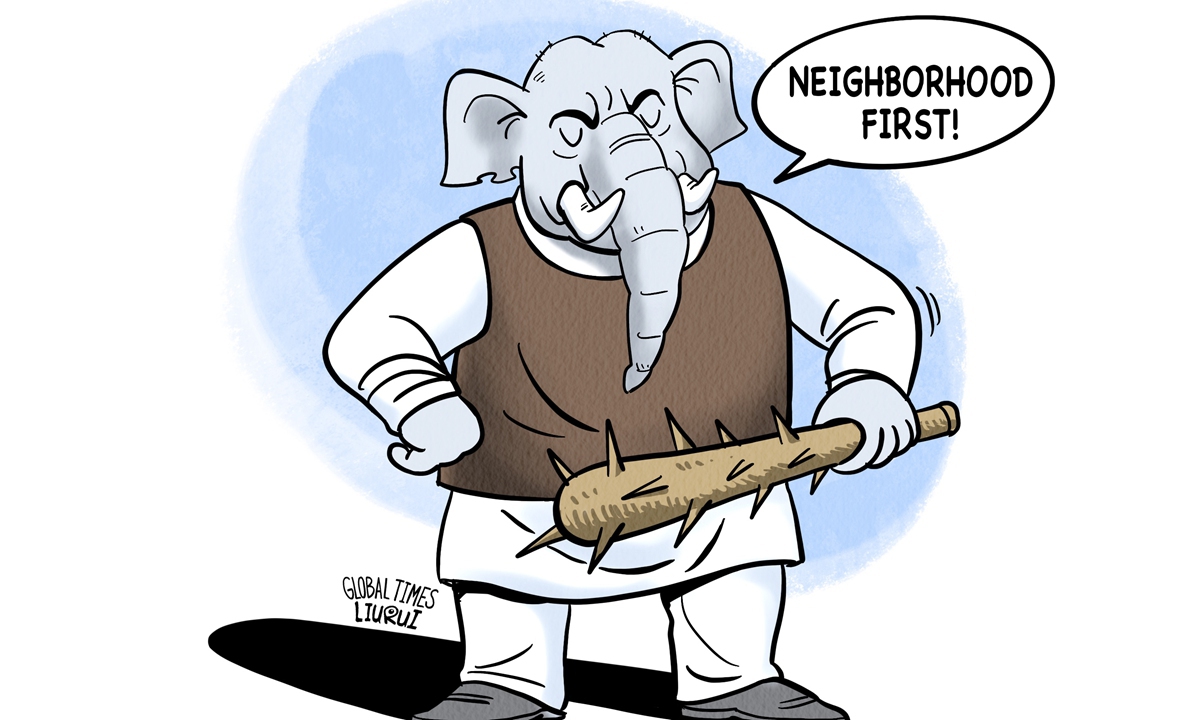Statement by H.E. Xi Jinping
President of the People’s Republic of China
At the 22nd Meeting of the Council of Heads of State of
The Shanghai Cooperation Organization
Samarkand, 16 September 2022
Your Excellency President Shavkat Mirziyoyev,
Colleagues,
I am delighted to attend the meeting of the Council of Heads of State of the Shanghai Cooperation Organization (SCO). I would like to thank you, President Mirziyoyev, for your warm hospitality and thoughtful arrangements. I salute Uzbekistan for the great job it has done to promote SCO cooperation in various fields during its presidency over the past year.
Samarkand, renowned as the pearl on the Silk Road, witnessed the glory of the ancient Silk Road, a route that greatly boosted the flow of goods, spread of science and technology, interaction of ideas, and integration of diverse cultures on the Eurasian continent. Indeed, the ancient Silk Road has remained a historical source of inspiration for us SCO member states as we pursue peace and development.
This year marks the 20th anniversary of the SCO Charter and 15th anniversary of the Treaty on Long-Term Good-Neighborliness, Friendship and Cooperation Between the SCO Member States. Over the years, guided by these two founding documents, we have succeeded in exploring a new path for the development of international organizations, and there is much we can draw on from SCO’s rich practices.
— Political trust. Guided by the vision of forging enduring friendship and peace among the SCO member states, we respect each other’s core interests and choice of development path and support each other in achieving peace, stability, development and rejuvenation.
— Win-win cooperation. We accommodate each other’s interests, stay true to the principle of consultation and cooperation for shared benefits, enhance synergy between our respective development strategies, and keep to the path of win-win cooperation toward common prosperity.
— Equality between nations. We are committed to the principle of equality among all countries regardless of their size, consensus-based decision-making, and addressing issues through friendly consultations. We reject the practice of the strong bullying the weak or the big bullying the small.
— Openness and inclusiveness. We stand for harmonious coexistence and mutual learning between different countries, nations and cultures, dialogue between civilizations and seeking common ground while shelving differences. We are ready to establish partnership and develop win-win cooperation with other countries and international organizations that share our vision.
— Equity and justice. We are committed to the purposes and principles of the UN Charter; we tackle major international and regional issues on the basis of their merits, and oppose the pursuit of one’s own agenda at the expense of other countries’ legitimate rights and interests.
These five points fully embody the Shanghai Spirit, namely, mutual trust, mutual benefit, equality, consultation, respect for diversity of civilizations and pursuit of common development. It has been shown that this spirit is the source of strength for the development of the SCO. It is also the fundamental guide we must continue to follow in the years to come. We owe SCO’s remarkable success to the Shanghai Spirit. And we will continue to follow its guidance as we forge ahead.
Colleagues,
Human society, like the natural world, has both sunny and rainy days in its development. Our world today is undergoing accelerating changes unseen in a century, and it has entered a new phase of uncertainty and transformation. The once-in-a-century pandemic has continued unabated. Regional conflicts keep flaring up. The Cold War mentality and group politics are resurfacing, so are unilateralism and protectionism. Economic globalization has encountered headwinds. Deficit in peace, development, trust, and governance has grown. Human society has reached a crossroads and faces unprecedented challenges.
Under these new conditions, the SCO, as an important constructive force in international and regional affairs, should keep itself well-positioned in the face of changing international dynamics, ride on the trend of the times, strengthen solidarity and cooperation and build a closer SCO community with a shared future.
First, we need to enhance mutual support. We should strengthen high-level exchanges and strategic communication, deepen mutual understanding and political trust, and support each other in our efforts to uphold security and development interests. We should guard against attempts by external forces to instigate “color revolution”, jointly oppose interference in other countries’ internal affairs under any pretext, and hold our future firmly in our own hands.
Second, we need to expand security cooperation. A proverb in Uzbekistan goes to the effect that “With peace, a country enjoys prosperity, just as with rain, the land can flourish.” The Global Security Initiative put forward by China is to address the peace deficit and global security challenges. It calls on all countries to stay true to the vision of common, comprehensive, cooperative and sustainable security and build a balanced, effective and sustainable security architecture. We welcome all stakeholders to get involved in implementing this initiative.
We should continue to carry out joint anti-terrorism exercises, crack down hard on terrorism, separatism and extremism, drug trafficking as well as cyber and transnational organized crimes; and we should effectively meet the challenges in data security, biosecurity, outer space security and other non-traditional security domains. China is ready to train 2,000 law enforcement personnel for SCO member states in the next five years, and establish a China-SCO base for training counter-terrorism personnel, so as to enhance capacity-building for law enforcement of SCO member states.
We should ensure that the SCO-Afghanistan contact group and the mechanism of coordination and cooperation among Afghanistan’s neighbors continue to play their roles; and we should encourage Afghan authorities to establish a broadly-based and inclusive political structure and remove the ground that breeds terrorism.
Third, we need to deepen practical cooperation. To deliver a better life for people of all countries in the region is our shared goal. The Global Development Initiative launched by China aims to focus global attention on development, foster global development partnership, and achieve more robust, greener and more balanced global development. China is ready to work with all other stakeholders to pursue this initiative in our region to support the sustainable development of regional countries.
We need to implement the two statements on safeguarding international energy and food security to be adopted by this summit and better protect energy and food security. China will provide developing countries in need with emergency humanitarian assistance of grain and other supplies worth 1.5 billion RMB yuan.
We welcome the Comprehensive Plan for the Implementation of the SCO Treaty on Long-Term Good-Neighborliness, Friendship and Cooperation for 2023-2027 to be adopted at this summit. We should fully implement the cooperation documents in such areas as trade and investment, infrastructure building, protecting supply chains, scientific and technological innovation and artificial intelligence to be adopted within the framework of the summit. It is important to continue our efforts to achieve the complementarity of the Belt and Road Initiative with national development strategies and regional cooperation initiatives, expand sub-multilateral cooperation and sub-regional cooperation, and create more growth drivers in cooperation.
We need to ensure implementation of the roadmap for SCO member states to expand shares of local currency settlement, better develop the system for cross-border payment and settlement in local currencies, work for the establishment of an SCO development bank, and thus speed up regional economic integration. Next year, China will host an SCO ministers’ meeting on development cooperation and an industrial and supply chains forum, and will set up the China-SCO Big Data Cooperation Center to create new engines of common development. China stands ready to carry out space cooperation with all other parties and provide satellite data service to support them in agricultural development, connectivity and disaster mitigation and relief.
Fourth, we need to enhance people-to-people and cultural exchanges. Exchanges promote integration among civilizations, which, in turn, enables civilizations to advance. We should deepen cooperation in such areas as education, science and technology, culture, health, media, radio and television, ensure the continued success of signature programs such as the youth exchange camp, the women’s forum, the forum on people-to-people friendship and the forum on traditional medicine, and support the SCO Committee on Good-Neighborliness, Friendship and Cooperation and other non-official organizations in playing their due roles. China will build a China-SCO ice and snow sports demonstration zone and host the SCO forums on poverty reduction and sustainable development and on sister cities next year. In the next three years, China will carry out 2,000 free cataract operations for SCO member states and provide 5,000 human resources training opportunities for them.
Fifth, we need to uphold multilateralism. Obsession with forming a small circle can only push the world toward division and confrontation. We should remain firm in safeguarding the UN-centered international system and the international order based on international law, practice the common values of humanity and reject zero-sum game and bloc politics. We should expand SCO’s exchanges with other international and regional organizations such as the UN, so as to jointly uphold true multilateralism, improve global governance, and ensure that the international order is more just and equitable.
Colleagues,
The Eurasian continent is home to us all. Upholding its peace and development is the shared goal of countries both in our region and the world at large, and the SCO shoulders an important responsibility in meeting this goal. In recent years, an increasing number of countries have applied to join our SCO family. This fully demonstrates the power of SCO’s vision and the widely shared confidence in its future. By promoting the development and expansion of the SCO and giving full play to its positive impact, we will create strong momentum and new dynamism for ensuring durable peace and common prosperity of the Eurasian continent and the whole world. China supports advancing SCO expansion in an active yet prudent manner, and this includes going through the procedure to admit Iran as a member state, launching the procedure for Belarus’ accession, admitting Bahrain, the Maldives, the United Arab Emirates, Kuwait and Myanmar as dialogue partners, and granting the relevant applying countries the legal status due to them. We need to seize the opportunity to build consensus, deepen cooperation and jointly create a bright future for the Eurasian continent.
Here I wish to express China’s congratulations to India on assuming the next SCO presidency. We will, together with other member states, support India during its presidency.
Colleagues,
This year, facing a complex and challenging development environment both at home and abroad, China has stayed committed to the general principle of making advances while maintaining stable performance, and it has striven to ensure both effective COVID-19 containment, economic stability and development security. We have continued to respond to COVID-19 and promote economic and social development in a well-coordinated way. Thus, to the greatest extent possible, we have both safeguarded the life and health of the people and ensured overall economic and social development. The fundamentals of China’s economy, characterized by strong resilience, enormous potential, ample room for policy adjustment and long-term sustainability, will remain sound. This will greatly boost the stability and recovery of the world economy and provide more market opportunities for other countries.
Next month, the Communist Party of China will convene its 20th National Congress. It will be an important meeting to be held at a critical time as China embarks on a new journey toward its second centenary goal of building a modern socialist country in all respects. At this national congress, the Communist Party of China will fully review the major achievements made and valuable experience gained in China’s reform and development endeavors. It will also formulate programs of action and overarching policies to meet China’s new development goals on the journey ahead in the new era and the new expectations of the people. We will continue to follow the Chinese path to modernization to achieve the rejuvenation of the Chinese nation, and we will continue to promote the building of a community with a shared future for mankind. By doing so, we will create new opportunities for the world with new advances in China’s development and contribute our vision and strength to world peace and development and human progress.
Colleagues,
Long as the journey is, we will surely reach our destination when we stay the course. Let us act in the Shanghai Spirit, work for the steady development of the SCO, and jointly build our region into a peaceful, stable, prosperous and beautiful home!
Thank you.

 World7 days ago
World7 days ago
 News5 days ago
News5 days ago
 News6 days ago
News6 days ago
 News5 days ago
News5 days ago
 News5 days ago
News5 days ago
 News4 days ago
News4 days ago
 News6 days ago
News6 days ago
 News6 days ago
News6 days ago
























